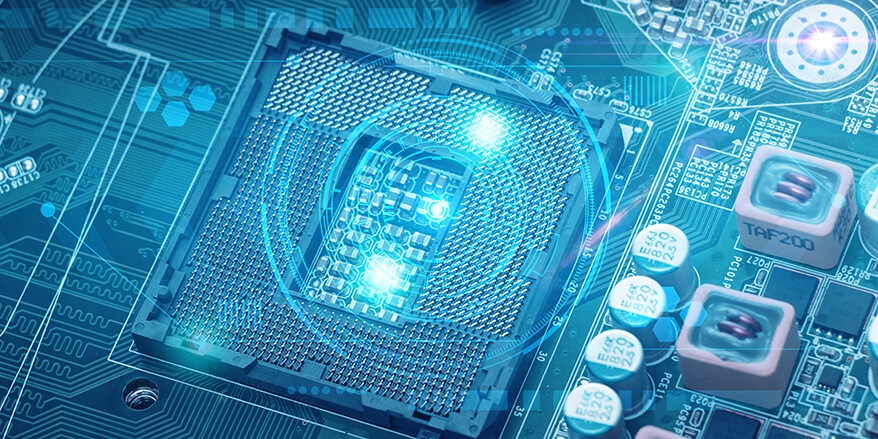How Do You Deal With Rechargeable Li-Ion AA Batteries?
Jul 25, 2019 Pageview:938
The AA batteries are very common in portable electronic devices. Since the introduction of the AA batteries in 1907, they have been standardized by the American National Standards Institute (ANSI). At that time, they have only used for flashlights electrical novelties. ANSI and IEC Battery nomenclature is appointed as per the cell size, the cell features, and their chemistry.
So, in this article, we are going to learn more about AA batteries and how to deal with them.
Characteristics of Rechargeable Li-Ion AA Batteries:
Starting from the name, the AA batteries also called double A or Mignon battery which means cute or adorable. It is a standard size single cell dry battery in the cylindrical shape. The IEC 60086 system calls it R6 size and ANSIC18 calls it size 15. The AA batteries are composed of a single electrochemical cell that can be either a primary battery or a rechargeable battery. The cell has different chemistries which can be used for different purposes. The cell chemistry depends on the exact terminal voltage, capacity, and practical discharge rate.
The devices designed to use the AA cells usually have 1.2 V to 1.5 V unless the manufacturer specifies something different. The Lithium AA cells weigh around 15 g and very easy to carry.
The characteristics of the AA Lithium-Ion batteries are mentioned below:
· Lithium-ion chemistry has a nominal voltage of 3.6 to 3.7 Volts. They are often referred to as 14500 Li-Ion batteries instead of AA batteries.
· Lithium Ion AA/14500 cells supply most of their capacity even when they are under a high current drain.
· There is a variant of 14500 Li-Ion batteries which is sold by a Chinese company and it comes with an internal buck converter at the positive electrode. It can down step the output voltage to a consistent 1.5 Volt AA standard voltage.
· The Lithium-ion chemistry will provide a 3% lower self-discharge rate.
· The AA batteries have a capacity of 1600 mAh at 50mA drain. The drainage is limited by the low efficiency of the step-down converter as they are widely used.
The AA batteries account for 60% of alkaline battery just in the United States. The percentage is 58% in Japan followed by Switzerland which has a percentage of 55% approximately. Currently, there is no standard size for the Lithium-Ion cells. So, before you buy the AA batteries, don’t forget to look for the dimensions and specifications of the battery to ensure that it will fit in your device.
Which Rechargeable Li-Ion AA Batteries Are Best·
If you google the best Lithium-Ion battery, you are most likely to come across China’s top manufacturer of AA batteries called Kentli. They are the top manufacturers of AA batteries all over the world. The batteries are rated at 2800mWh and have 1.5 V Li-Ion cells which make it the best choice for the consumer-grade electronics.
Most commonly, these batteries are perfectly suitable for high drain devices like LED flashlights. Not long ago, the AA battery market was occupied by the disposable alkaline batteries. But as improvements were made in the technology, the dominance shifted towards the Li-Ion batteries. Even the Nickel-Metal Hydride AA batteries make a cost-efficient option.
The 1.5 V lithium-ion battery cells have a high energy density, lower self-discharge rate, and have a long life cycle. Kentli is offering an ideal choice for everyday household requirements. The batteries have the standard voltage as that of the new alkaline battery. It won’t even overpower the device. As you already know 2800mWh is a capacity which is appreciated by the users. In simple words, these batteries will last longer and it can maintain an even voltage than any other type of cells.
Apart from Kentli, you also have other options for the rechargeable batteries. The higher voltage Lithium-ion batteries are made to deliver high-performance flashlights and cameras. But the batteries designed by Kentli are not intended to be used with many products. Thus, you can look for batteries designed by Excellent. They manufacture 2600mAh capacity batteries with high-quality cells. They are great for UV or high powered LED flashlights that usually consume a lot of energy.
How Do You Deal With Rechargeable Li-Ion AA Batteries Properly·
The AA batteries are very common these days that consumer often confuses them with other batteries and end up making stupid mistakes. Each type of AA battery, including Nickel Metal Hydride batteries, Lithium batteries, Lithium-Ion batteries, alkaline batteries, etc. has its strength and weaknesses. And it is hard to remember all the safety measures and the handling points.
When you have a Lithium-Ion AA battery, it can be really confusing. Technically speaking, there is no such thing as AA size rechargeable Li-Ion batteries. They are typically 3.6 or 3.7-volt battery and they require a dedicated charger. Only the technical people know about their exact specifications.
Every type of battery has some dos and don’ts that the consumers have to follow. But the good thing about these batteries is that it doesn’t come with many drawbacks. As they have the best energy density and have a very slow loss of charge even when it is not in use, they make pretty useful consumer-grade electronics.
Although, the batteries have the risk of unexpected ignition from the heat generated within the battery and the temperature outside as well. These incidents are rare but it is advised not to store the batteries in a heated place. The risks of using the Lithium-Ion AA batteries can be minimized via appropriate design and installation procedures. The consumers are also advised to take employ the layers of safeguard so the risks can be managed properly.
Along with all this, you should also follow the common guidelines of handling any battery like keeping them away from the reach of children and keeping the batteries in someplace safe.
- Prev Article: Discussion on Lithium ion battery types
- Next Article: Do You Know How To Get Cheap Lithium Batteries?
Leave Message
Hottest Categories
-
Hottest Industry News
-
Latest Industry News













